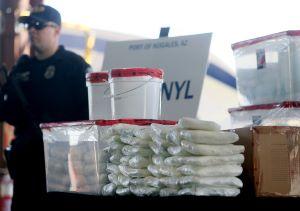A federal appeals court has upheld a Mississippi ban on medical marijuana advertising, and more.

Medical Marijuana
Federal Appeals Court Rules Mississippi Can Ban Medical Marijuana Advertising. A three-judge panel of the US 5th Circuit Court of Appeals ruled last Friday that a state law banning medical marijuana advertising can stand. The court held that medical marijuana operators in the state do not have the right to advertise on billboards because marijuana remains a federally illegal substance.
The state had passed the law in 2022, only to see it challenged by a dispensary operator who argued that because the state has a law allowing the use and sale of medical marijuana, he has a First Amendment right to advertise.
But the appeals court rejected that argument, citing the federal Controlled Substances Act, which has prohibited the manufacture, distribution, dispensing and possession of marijuana since 1970. That law applies in all states, the court held, and the state thus "faces no constitutional obstacle to restricting commercial speech relating to unlawful transactions."
Clarence Cocroft II, the dispensary operator who sued the state, was not happy.
"Upholding this ban makes it incredibly difficult for me to find potential customers and to educate people about Mississippi’s medical marijuana program," Cocroft said Monday. "I remain committed to continuing this fight so my business can be treated the same as any other legal business in Mississippi."
Cocroft was represented by the libertarian-leaning Institute for Justice, which said it is considering its options, including asking the entire 5th Circuit to reconsider the case or appealing to the US Supreme Court.
"Mississippi cannot on the one hand create an entire marketplace for the sale of medical marijuana, and on the other hand rely on an unenforced federal law to prohibit buyers and sellers from talking about it," said Ari Bargil, an Institute for Justice attorney.
Nebraska District Judge Upholds Voter-Approved Medical Marijuana Access Initiatives. A district court judge has rejected a legal challenge to a paired set of voter-approved medical marijuana initiatives, Measure 437, which permits qualified patients to possess and use marijuana, and Measure 438, which establishes a regulated system for the production and distribution of medical marijuana.
Opponents of the measures had sought to invalidate the results by arguing that some of the signatures necessary to qualify the measures for the ballot had been fraudulently gathered, but the judge rejected their argument, noting that fewer than a thousand signatures for each measure were ruled invalid.
"To prevail in this action, the plaintiff and Secretary had to show that more than 3,463 signatures on the Legalization Petition and 3,357 signatures on the Regulatory Petition are invalid," the judge held. "The Plaintiff and Secretary are well short."
"Many years of hard work have gone into this effort — from volunteers, patients and families across the state," said Nebraskans for Medical Marijuana campaign manager Crista Eggars. "Knowing that another mother will soon have an option for her suffering child makes it all worthwhile."
The state attorney general's office said it is reviewing the ruling and will decide whether to appeal to the state Supreme Court or not
Foreign Policy
Trump Team Preparing for Tougher Stance Against China on Fentanyl. Advisers for the incoming Trump administration are pushing for a much tougher line on China regarding fentanyl than the one Democrat Joe Biden pursued. Meanwhile, Trump himself has already signaled that he will resort to one of his favorite weapons—tariffs—to try to stem the flow of drugs from Chinese chemical companies, of which there are more than 400,000.
Chinese companies are the main source of fentanyl precursor drugs and Chinese money launderers are key players in the trade. The precursor chemicals are typically shipped to Mexico, where cartel labs turn them into fentanyl, which is then smuggled into the US. Some fentanyl also comes from Canada, and fentanyl labs have been found in both the US and Canada.
Saying Canada, China, and Mexico have not taken strong enough actions to blunt the trade, and that previous talks with China on the issue had been "to no avail," Trump on Monday threatened 10 percent tariffs on goods from China and 25 percent tariffs on imports from Canada and Mexico.
While China imposed restrictions on fentanyl and some precursors and analogs, US security officials and China hawks say the Biden administration did not do enough to pressure China.
In addition to tariffs, some incoming officials and advisors are suggesting sanctions against Chinese banks in league with money launderers or crooked chemical sellers.
David Asher, a former anti-money laundering official who is now a senior fellow at the Hudson Institute, a conservative think tank in Washington, was down with that.
"You need to hit all the bankers. It’s sort of basic," he said.
Asher has drafted a preliminary plan for the Trump transition calling for a whole-of-government approach that would bring to bear diplomatic, law enforcement, and financial power to address the crisis. That could include criminal charges against major Chinese and Mexican banks, massive sanctions on people and companies involved in the fentanyl trade, increased bounties for top traffickers, and cyber war against Mexican cartels.
China, for its part, is warning that a trade war "could endanger anti-narcotic cooperation" with the US.
This work by StoptheDrugWar.org is licensed under Creative Commons Attribution-ShareAlike 4.0 International
Add new comment